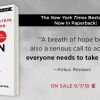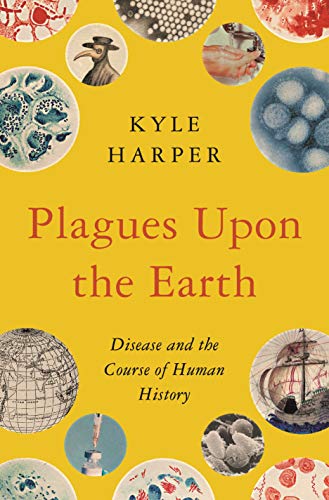14 Medicine History Books That Illuminate Medical Breakthroughs and Challenges
Discover books recommended by Bill Gates, Seth Macfarlane, Robert Whitaker, and other experts for insightful perspectives on Medicine History







What if the stories behind medicine's greatest triumphs and darkest moments could reshape how you see health today? Medicine history isn't just a chronicle of discoveries; it's a human saga of risk, innovation, and societal change that still influences modern health decisions.
Consider how Bill Gates, deeply involved in global health, found "House on Fire" vital for understanding smallpox eradication's strategic complexity. Meanwhile, Seth Macfarlane uncovered surprising vaccine history details in "Vaccine," challenging common assumptions. Robert Whitaker's reflections on "Sane Asylums" reveal lost approaches to mental health care, blending science with compassionate treatment.
While these expert-curated books provide proven frameworks, readers seeking content tailored to their specific interests and learning goals in medicine history might consider creating a personalized Medicine History book that builds on these insights for a more focused journey.
Recommended by The Wall Street Journal
“[Catharine Arnold] is good at looking at civilians as well as troops and their nurses and doctors and at teasing out the human side of the catastrophe… powerful stories of ordinary people.” (from Amazon)
by Catharine Arnold··You?
When Catharine Arnold set out to chronicle the 1918 Spanish Flu, she drew on her background in English and psychology to bring a human dimension to this vast tragedy. You’ll find firsthand accounts from soldiers, nurses, and civilians woven through a global narrative that reveals how the pandemic reshaped societies during World War I. The book delivers detailed insights into the social and medical responses, including how governments concealed the outbreak to maintain morale. If you want to understand the personal and systemic impact of one of history’s deadliest pandemics, this book offers a sobering, well-researched perspective.
Recommended by Jeff Dean
Senior Fellow & SVP, Google AI Research and Health
“Thanks for the pointer, @joetimmons79! Also, looks like John Barry, the speaker in the video, is an author, & has an interesting looking book about the 1918 flu (if flu pandemic books while social distancing is your cup of tea: I've added to my queue):” (from X)
by John M. Barry··You?
by John M. Barry··You?
Drawing from his extensive expertise as a historian and advisor on pandemic policy, John M. Barry offers a detailed examination of the 1918 influenza pandemic that reshaped public health. You’ll gain insight into how science and politics collided during this crisis, with chapters dissecting the virus’s spread from army camps to global catastrophe and the critical role of transparent leadership in managing public trust. The book reveals not only the medical challenges but also the social and political responses, offering lessons still relevant for today’s epidemics. If you want to understand the complex interplay between disease and society through a historical lens, this book provides a thorough and measured exploration.
by TailoredRead AI·
This personalized book explores the rich tapestry of medicine history, focusing on key events and influential figures that shaped modern medical knowledge. Tailored to your specific interests and background, it delves into the evolution of medical practices, landmark discoveries, and the societal impact of medicine throughout the ages. By weaving together diverse historical narratives, this tailored guide addresses your unique learning goals and reveals the intricate connections between past breakthroughs and contemporary health care. Crafted to match your personal focus, it examines medical revolutions and lesser-known pioneers alike, inviting you to engage deeply with the stories behind medicine's ongoing journey. This approach offers a focused, engaging path through complex expert content, making history resonate with your perspective and curiosity.
Recommended by Bill Gates
Co-Founder & Former CEO of Microsoft, Philanthropist
by William H. Foege··You?
by William H. Foege··You?
When William H. Foege recounts his journey in "House on Fire," you gain a firsthand perspective of the battle against smallpox, a disease that devastated millions through centuries. Drawing on his experience as chief of the CDC's Smallpox Eradication Program, Foege details the innovative vaccination strategy that turned the tide during a critical outbreak in India. You see the complex interplay of global cooperation, local challenges, and public health tactics that made eradication possible, with vivid accounts from fieldwork to international coordination. This book suits anyone interested in public health, infectious diseases, or the history behind one of medicine's greatest victories, offering both strategic insights and human stories.
Recommended by Science
“An easily approachable yet factually rich narrative. Oshinsky provides a very readable and enlightening history that also can be appreciated as good storytelling.” (from Amazon)
by David M. Oshinsky··You?
by David M. Oshinsky··You?
The research was clear: traditional narratives about polio overlooked much of the complex social and scientific drama behind the vaccine's development. David M. Oshinsky, a seasoned historian at the University of Texas at Austin, digs into newly available archives and personal papers to trace the fierce rivalry between Jonas Salk and Albert Sabin, while spotlighting lesser-known figures like Isabel Morgan. You'll gain insight into how the March of Dimes transformed public health fundraising and how polio shaped American culture in the 1950s. This book suits anyone interested in the intersection of medicine, society, and the politics of scientific discovery, offering specific chapters on vaccine trials and legal reforms.
Recommended by Seth Macfarlane
Creator and Producer, The Orville
“Are vaccine mandates really so new? Here’s an interesting anecdote described in Arthur Allen’s book “Vaccine”. Variolation was an early technique for immunizing against smallpox:” (from X)
by Arthur Allen··You?
Arthur Allen draws on two decades covering science and medicine to trace vaccination's complex journey from Edward Jenner's audacious smallpox experiment in 1796 to today's heated debates. You gain insight into how vaccines shaped public health and the controversies that shadow them, including early practices like variolation and the shift in pharmaceutical priorities. The book offers detailed historical episodes, such as Pasteur's rabies vaccine development and twentieth-century immunization campaigns, revealing the persistent tension between hope and skepticism. If you want to understand the social, scientific, and political forces that have influenced vaccine acceptance and resistance, this book lays out a nuanced narrative that respects the complexity without oversimplifying.
by TailoredRead AI·
by TailoredRead AI·
This tailored book explores the transformative impact of pandemics throughout medical history, from ancient outbreaks to contemporary challenges. It examines how pandemics have shaped medical knowledge, public health responses, and societal change. By focusing on your interests and background, this personalized guide reveals connections between historic events and modern medical advancements, offering a nuanced understanding of disease dynamics. With a tailored approach, it covers the evolution of pandemic responses, key scientific breakthroughs, and the human experiences behind global health crises. This book provides a focused journey through complex topics, matching your specific goals in learning about pandemics' profound influence on medicine and society.
Recommended by Jessy Jessi Jessé
Podcast host and cultural commentator
“Oh look: @Sawbones' book is out in paperback! It is a delight, take it from me, and now it is full of TERRIFYING COVID INFO! Take it from me, this is the best book you will read this year by a real doctor and a charming goober who lucked into marrying her.” (from X)
by Sydnee McElroy, Justin McElroy, Teylor Smirl··You?
by Sydnee McElroy, Justin McElroy, Teylor Smirl··You?
Unlike most medicine history books that often take a dry academic tone, this one brings centuries of medical myths and mishaps to life through humor and detailed storytelling. Written by Dr. Sydnee McElroy, a practicing family physician and medical educator, alongside her husband Justin and illustrator Teylor Smirl, the book dives into bizarre treatments from trepanation to radioactive garments, blending historical context with contemporary relevance, especially notable in its updated coverage of the COVID-19 pandemic. You’ll gain insight into how medical practices have evolved, why certain remedies were popular, and how to critically assess health claims today. If you appreciate a blend of science, history, and wit, this book will both educate and entertain you, though those seeking a purely clinical history might find the humor a bit distracting.
Recommended by Tom Holland
Historian and Herodotus translator
“From his predictably brilliant new book on the history of disease, #PlaguesUponTheEarth” (from X)
Kyle Harper, a historian of the classical world at the University of Oklahoma, challenges the conventional wisdom that disease history is merely a medical chronology. Instead, he weaves genetics, evolutionary biology, and socio-economic history into a sweeping narrative that connects human origins to modern pandemics. You’ll gain insight into how disease shaped the rise of farming, urbanization, slavery, colonialism, and capitalism, revealing persistent patterns of inequality. Chapters exploring the interplay between technological progress and disease evolution provide concrete examples of how human advancement has both fought and fostered pathogens. This book suits anyone intrigued by the deep entanglement of health, history, and human society.
Recommended by Pedro Da Costa
Economy watcher at Market News International, Forbes blogger
“@nathaniel_cline AMAZING book. I interview him here:” (from X)
by Frank M. Snowden··You?
by Frank M. Snowden··You?
What happens when a distinguished historian specializing in the history of medicine turns his attention to epidemics? Frank M. Snowden, drawing on decades of academic expertise at Yale, explores how diseases like the Black Death, cholera, and HIV/AIDS have shaped not just medical science but entire societies. You’ll gain insights into public health evolution, social responses to outbreaks, and even how epidemics influenced art and religion. For example, Snowden’s chapters on the societal fallout from SARS and Ebola provide a nuanced perspective on contemporary health crises. This book suits you if you want a deep dive into the interplay between disease and culture rather than just clinical details.
Recommended by Cass Sunstein
Harvard Professor; former White House official; author
“A review of a fascinating new book by Paul Offitt, on medical innovation. @nytimesbooks @PamelaPaulNYT” (from X)
by Paul A Offit MD·You?
Drawing from his extensive background as a pediatrician and vaccine expert, Paul A. Offit explores the inherent risks woven into medical breakthroughs throughout history. You learn how pivotal innovations—from early blood transfusions to today's mass vaccinations—have always involved navigating uncertainty and societal debate. The book delves into chapters revealing the political and human factors influencing medicine’s progress, offering insights into how risk shapes both individual decisions and public health policies. If you want to understand the delicate balance between medical advancement and risk acceptance, this book lays out the complexities without oversimplifying.
Recommended by Robert Whitaker
Author and mental health researcher
“In Sane Asylums, Jerry Kantor digs into the past to reveal a surprising history, one that challenges current societal beliefs. The most joyful chapter in this book tells of ‘baseball therapy’ practiced at Middletown State Homeopathic Hospital for the Insane, with the Asylums, as the hospital’s team was known, posting a surprisingly good record in competition with other local New York baseball teams. You read this and can’t help but ask yourself, what does this reveal about our mental health care today?” (from Amazon)
by Jerry M. Kantor, Eric Leskowitz··You?
by Jerry M. Kantor, Eric Leskowitz··You?
Drawing from Jerry M. Kantor's extensive background in homeopathy and acupuncture, this book traces the largely forgotten era when homeopathic psychiatric asylums achieved remarkable success in the United States, especially from the 1870s to 1920. You learn about practical treatment methods, such as Selden Talcott's holistic approach at Middletown State Homeopathic Hospital, which combined nutrition, moral therapy principles, and homeopathic remedies without harmful side effects. The book also challenges prevailing narratives by revealing how homeopathy was sidelined by pharmaceutical interests despite documented positive outcomes. If you're interested in historical perspectives on mental health care and alternative treatments, this book offers a unique lens that may reshape your understanding of psychiatric history and future possibilities.
by Maoshing Ni··You?
Maoshing Ni, Ph.D., brings his extensive expertise as a doctor of Oriental medicine and licensed acupuncturist to this translation of the Neijing Suwen, a foundational Taoist medical text attributed to the ancient Yellow Emperor. You’ll explore a holistic view of health that integrates etiology, physiology, diagnosis, therapy, and prevention, alongside insights into ethics, psychology, and cosmology, all presented through dialogues that reveal interconnected natural laws. His annotations clarify the often terse original text, making these profound concepts accessible whether you’re a student or simply curious about traditional Chinese medical philosophy. This book suits those interested in ancient medical wisdom and holistic health frameworks rather than conventional biomedical approaches.
by george rosen··You?
by george rosen··You?
Drawing from his extensive background as a historian specializing in public health, George Rosen presents a detailed exploration of the evolution of health systems through distinct historical phases. You gain insights into how societal changes during the pre-capitalist, revolutionary, and modern periods shaped public health policies and practices. The book delves into the complexity of health actions influenced by capitalism's development, offering concrete examples of shifting public health strategies over time. It's a solid choice if you want to understand the broader social and economic forces that have defined public health's trajectory rather than just medical facts or biographical accounts.
Recommended by Jason Stanley
Philosophy professor at Yale University
“@ElectricAgora Nazi Doctors is a brilliant book but the idea that the discipline of philosophy abdicates completely the questions of why people find such ideologies attractive and act on them to psychology, sociology, or history is bizarre to me.” (from X)
by Robert Jay Lifton··You?
by Robert Jay Lifton··You?
Robert Jay Lifton, a distinguished psychiatrist and professor deeply engaged with the psychology of violence, investigates the disturbing role of German doctors during the Nazi era. You gain a profound understanding of how medical professionals participated in genocide, exploring psychological mechanisms that enabled ordinary individuals to commit extraordinary atrocities. Lifton’s analysis goes beyond historical facts, offering insights into the ethical erosion and psychological conditioning that facilitated medical killing, particularly detailed in chapters examining the doctors’ complicity and ideology. This book is essential if you seek to comprehend the darkest intersections of medicine, psychology, and history, especially for those interested in the ethical boundaries of medical practice.
Recommended by Heather Furnas
Board-certified plastic surgeon, Stanford professor
“Thank you Janice Nimura and W. W. Norton for unraveling the fascinating story of The Doctors Blackwell. As you say, >50% of med students and 35% of physicians are women, but half that number are surgeons. As a surgeon myself, I loved the book! 👍🏽👏🏽👏🏽👏🏽” (from X)
by Janice P. Nimura·You?
Janice P. Nimura brings to life the story of Elizabeth and Emily Blackwell, two sisters who defied 19th-century conventions to carve a place for women in medicine. You’ll gain detailed insight into their personal struggles, professional breakthroughs, and the social dynamics that shaped their journey, including the founding of the New York Infirmary for Indigent Women and Children. The book carefully balances medical history with biographical depth, revealing how their convictions sometimes clashed with emerging women’s rights movements. If you’re interested in how individual determination intersects with broader social change, this narrative offers a nuanced look at pioneering women in a male-dominated field.
Get Your Custom Medicine History Guide in 10 Minutes ✨
Stop sifting through generic advice. Receive targeted Medicine History insights tailored to you.
Trusted by thousands of Medicine History enthusiasts and professionals
Conclusion
This collection underscores clear themes: the interplay of science and society during health crises, the ethical dilemmas shaping medical practices, and the pioneering individuals who transformed medicine's landscape. If you're grappling with understanding public health’s evolution, start with "The Great Influenza" and "Epidemics and Society" for broad historical context.
For those fascinated by innovation and risk, combining "You Bet Your Life" with "Polio" reveals how breakthroughs emerge amid controversy. Interested in medical ethics and societal impact? "The Nazi Doctors" challenges you to confront medicine's darkest chapters.
Alternatively, you can create a personalized Medicine History book to bridge the gap between general principles and your specific situation. These books can help you accelerate your learning journey and deepen your understanding of medicine's past to inform its future.
Frequently Asked Questions
I'm overwhelmed by choice – which book should I start with?
Start with "The Great Influenza" for a gripping account of the 1918 pandemic that blends science, politics, and society. It sets a strong foundation for understanding medicine history during crises.
Are these books too advanced for someone new to Medicine History?
Not at all. Books like "The Sawbones Book" use humor and storytelling to make medical history accessible, while others provide detailed narratives suitable for beginners and seasoned readers alike.
What's the best order to read these books?
Begin with broader historical overviews like "Epidemics and Society," then explore focused topics such as vaccine development in "Polio" and ethical issues in "The Nazi Doctors" to build layered understanding.
Should I start with the newest book or a classic?
Both have value. Newer books like "Plagues Upon the Earth" offer fresh interdisciplinary perspectives, while classics like "The Yellow Emperor's Classic of Medicine" provide foundational insights into ancient medical thought.
Do I really need to read all of these, or can I just pick one?
You can pick based on your interests—each book offers distinct focuses. For example, choose "House on Fire" for disease eradication or "You Bet Your Life" for medical innovation risks.
How can I get tailored insights if I want to focus on specific aspects of Medicine History?
While these books offer expert perspectives, creating a personalized Medicine History book lets you focus on your unique interests and goals, complementing general knowledge with targeted learning.
📚 Love this book list?
Help fellow book lovers discover great books, share this curated list with others!
Related Articles You May Like
Explore more curated book recommendations













